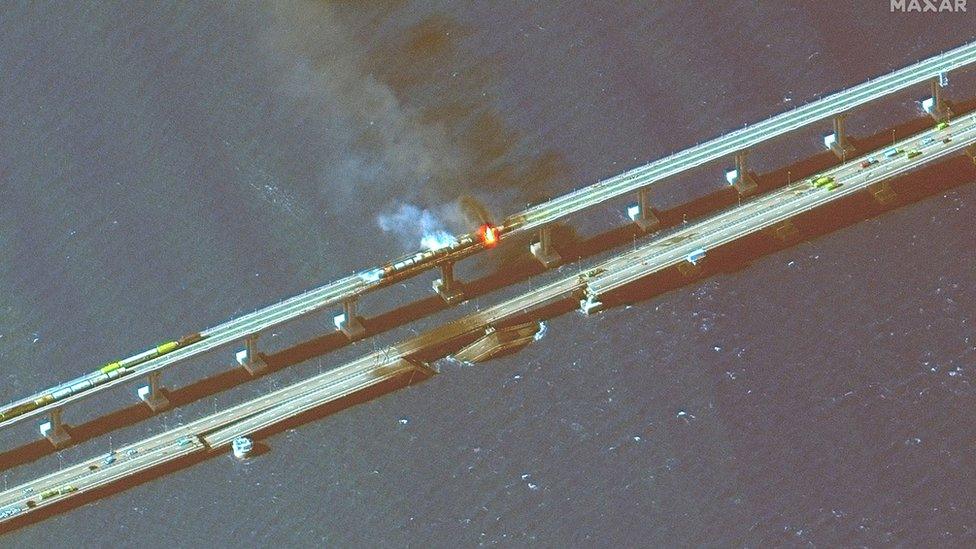Ukraine war: Grain ships leave Ukraine ports despite Russian pull-out
- Published
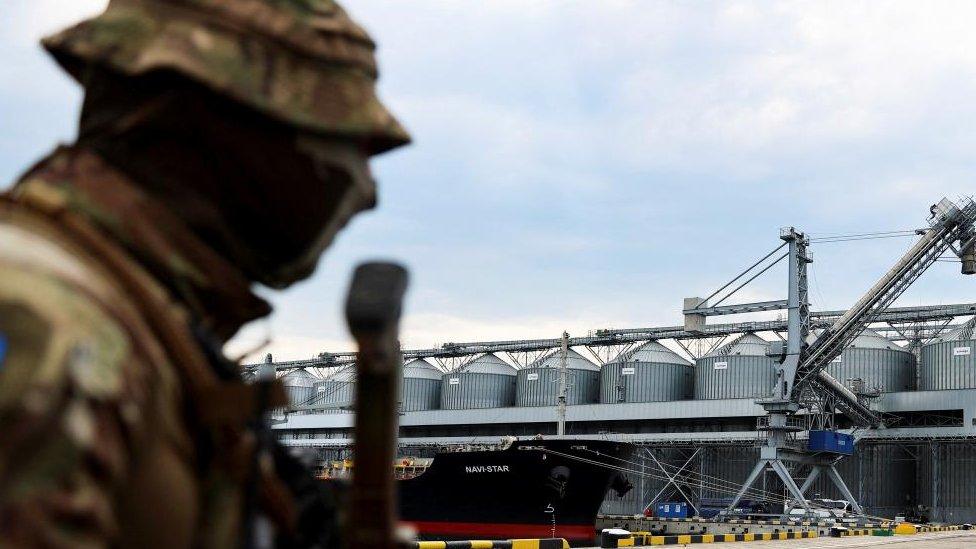
The grain deal had been hailed as a triumph of diplomacy before the Russian pullout
Ukraine says 12 ships loaded with grain left its Black Sea ports on Monday, despite Russia's withdrawal from a key deal facilitating exports.
A senior Ukraine official said one of the vessels with 40,000 tons of grain was for Ethiopia "who faced the real possibility of mass starvation".
Ukraine earlier accused Russia of "blackmailing the world with hunger".
Moscow pulled out from the deal after a drone attack on its Black Sea Fleet in the annexed Crimea peninsula.
The Kremlin blamed Kyiv for Saturday's attack, saying "the Russian side cannot guarantee the safety of civilian dry cargo ships".
On Monday, President Vladimir Putin said Russia was suspending, but not ending, its participation in the deal.
Kyiv has not admitted responsibility for the attack, saying Moscow had long planned to abandoned the internationally-brokered deal and used the attack as a pretext to do so.
After Russia invaded Ukraine in February, its navy imposed a blockade on Ukraine's Black Sea ports, trapping about 20 million tonnes of grain meant for export inside the country, along with other foodstuffs such as maize and sunflower oil.
In a tweet, Ukrainian Infrastructure Minister Oleksandr Kubrakov wrote that the 12 ships left Ukraine's ports earlier on Monday.
Russian President Vladimir Putin's spokesman warned that it would be too risky for Ukraine to continue exporting grain.
"In conditions when Russia is talking about the impossibility of guaranteeing the safety of shipping in these areas, such a deal is hardly feasible, and it takes on a different character - much more risky, dangerous and unguaranteed," Dmitry Peskov said.
The Russian withdrawal from the deal has been condemned by the US, who said Moscow was "weaponising food".
The EU's foreign policy chief, Josep Borrell, has urged Russia to reverse its decision, saying jeopardising the export of grain and fertilisers would impact the global food crisis.
The Russian ambassador to the US has rejected accusations that his country was exacerbating a global food crisis, saying it was unfair to criticise Russia.
The agreement was personally negotiated by the UN secretary general and celebrated as a major diplomatic victory that helped ease a global food crisis.
But Russia has complained that its own exports are still hindered, and that most of the grain had been sent to wealthy nations.
Some food has gone directly to the poorest countries in the world, and some has been shipped to countries where people are at risk of starvation, under UN humanitarian relief programmes.
However, UN figures show that the bulk of Ukrainian food exported in the last three months has been going to Spain, Turkey, Italy, China and Netherlands., external
Ukraine and Russia are the world's major grain exporters, and millions of people in poor countries around the world rely on the two countries' supply.
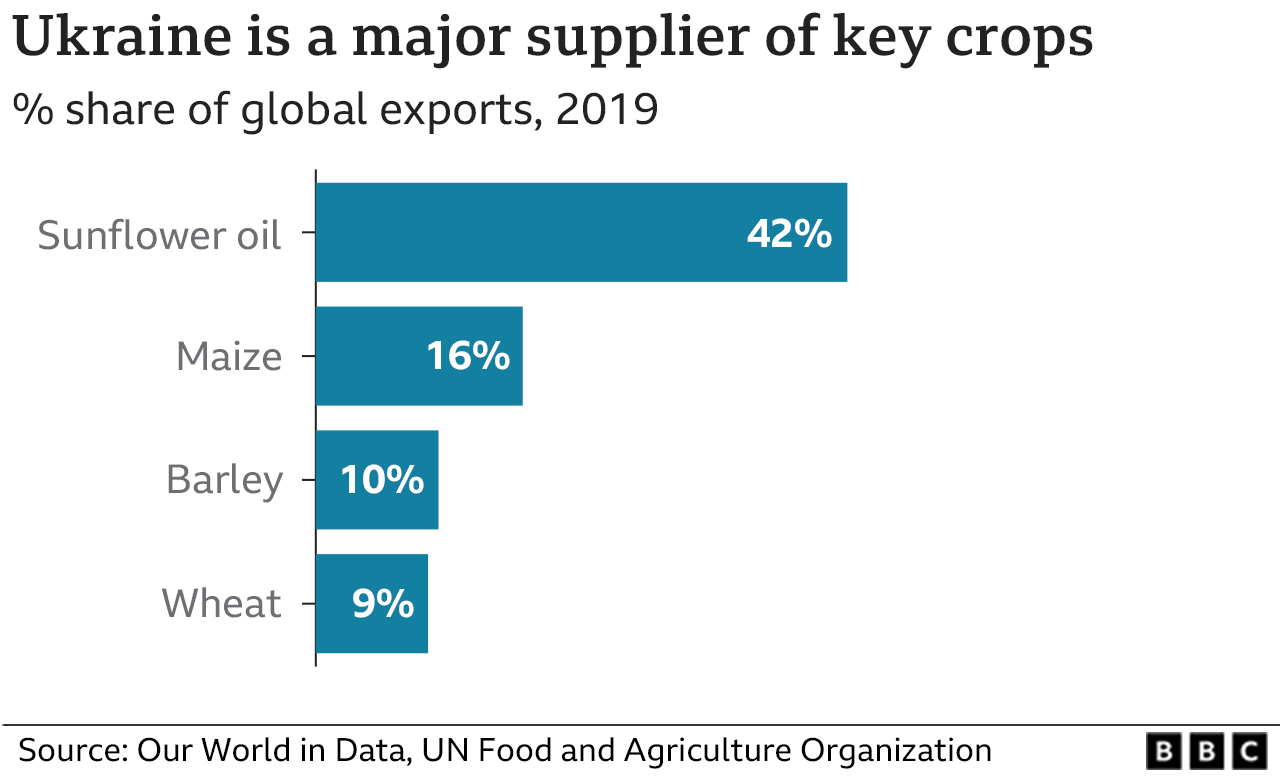
Related topics
- Published2 April 2024
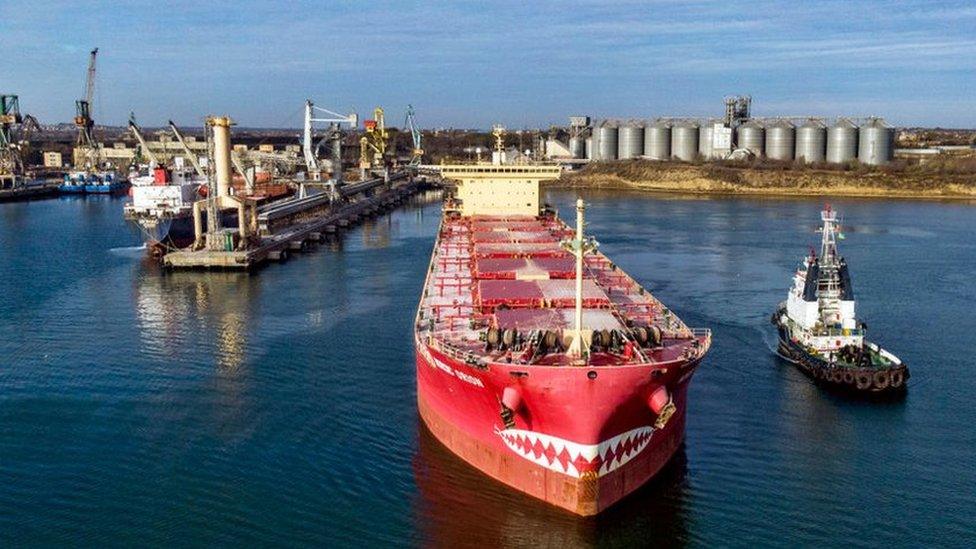
- Published29 October 2022
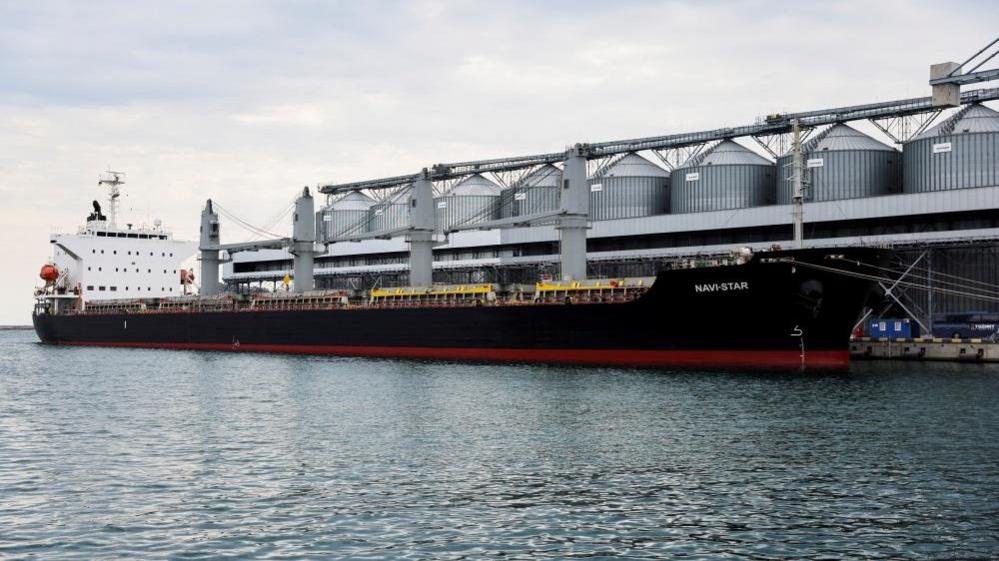
- Published10 October 2022

- Published19 August 2022
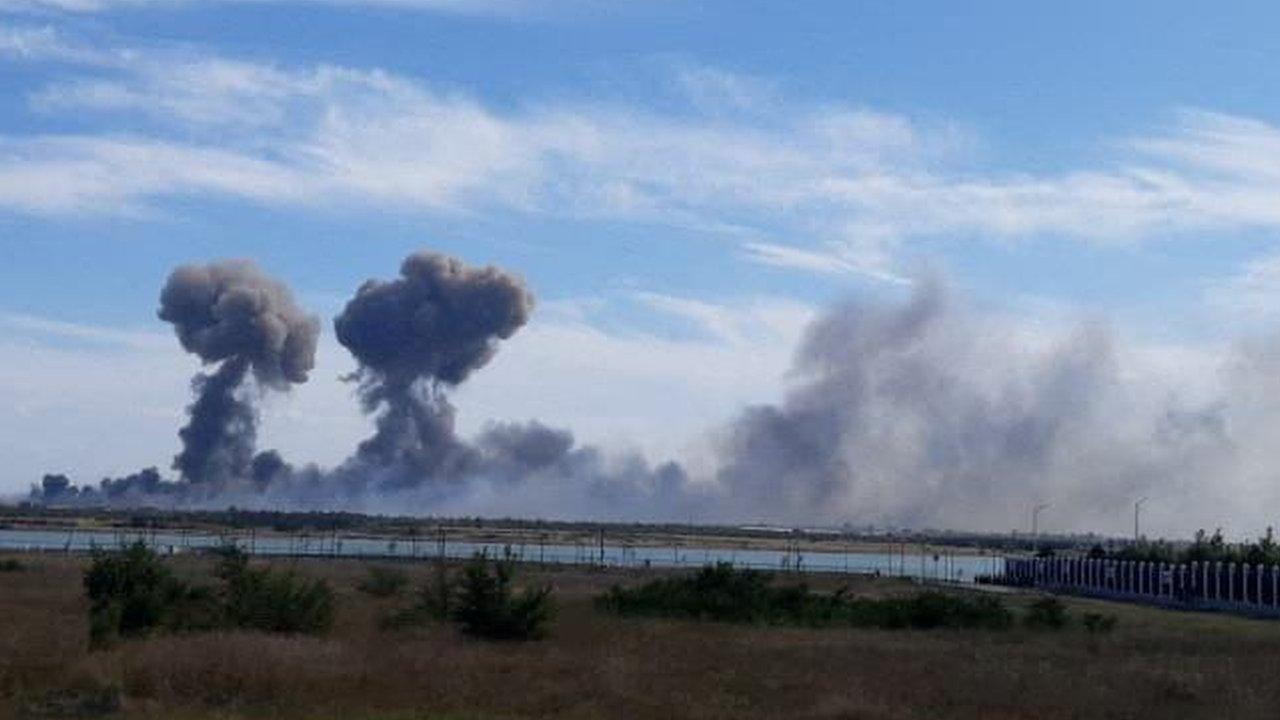
- Published9 October 2022
